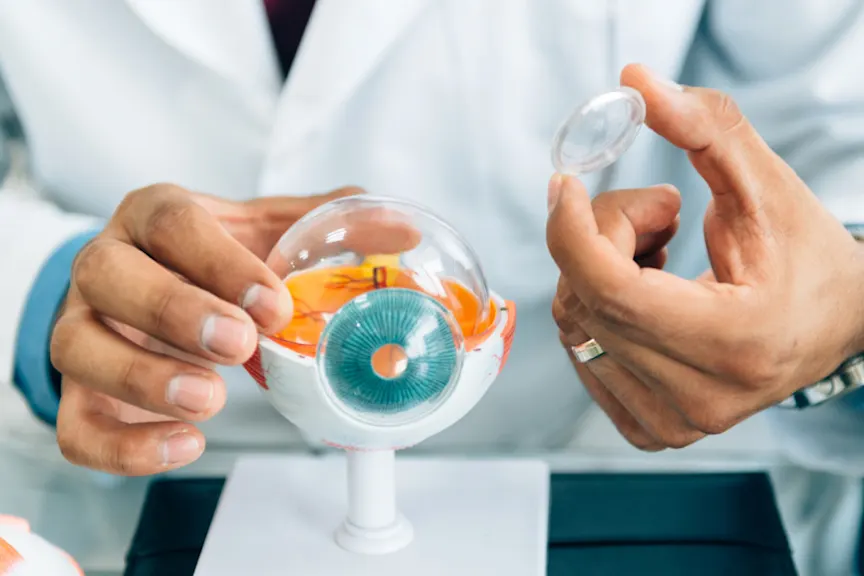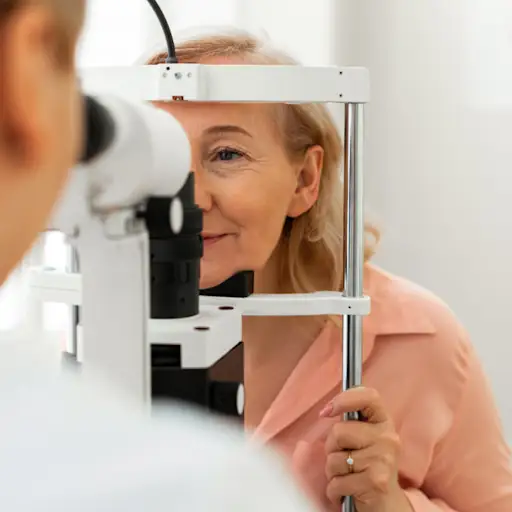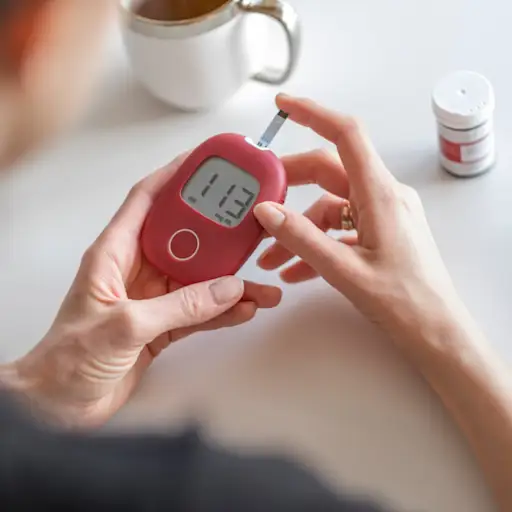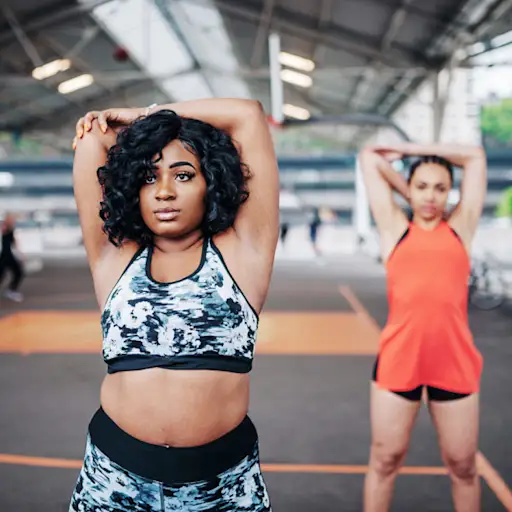9 Tips to Prevent Eye Problems When You Have Diabetes

There's a reallyimportant reason why your doctors are so adamant about keeping your blood-sugar well-managed: Without it, diabetes can wreak havoc on your heart, kidneys, and nerves. It also can steal your sight. In fact, diabetic retinopathy (DR), a complication thataffects the light-sensitive cells in the eye, is the leading cause of vision loss in adults ages 20 to 74 years old, according to research in theLancet.
Yep, that's super scary. But it's also preventable—if you take the proper steps to protect your eyes. Here, experts share the top ways people with diabetes can keep their vision clear.

Get Your Eyes Screened Regularly
It's one of the best ways to prevent eye problems. "One of the problems with diabetes is you can't always tell when you are developing eye disease," says Jeffrey Henderer, M.D., professor of ophthalmology at Temple University Lewis Katz School of Medicine in Philadelphia. "Although we can treat diabetic eye disease and hopefully prevent vision loss or even improve vision, it's far better to prevent it in the first place." If you don't have an ophthalmologist already, ask your endocrinologist for a referral.

Make Your Appointment for Next Year
Whether you have diabetic eye disease or not, getting your eyes screened once won’t help–you need to go every year at least and more if you have a preexisting eye condition. "Annual dilated eye exams have been shown to reduce blindness by 95% because changes can be caught early before they progress to more sight-threatening DR," says Leonid Skorin, Jr., D.O., an osteopathic ophthalmologist at the Mayo Clinic Health System in Albert Lea and Austin, MN.

Check Your Blood Sugar on the Regular
Yep, file this one under obvious, but it's worth repeating: "Managing one's diabetes slows the onset and worsening of DR," says Dr. Skorin. "Unfortunately, no level of average glucose is totally protective against DR," but any damage to the eyes' blood vessels continues as a slower pace. And while controlling your blood sugar can prevent many health complications from diabetes, Dr. Skorin adds that it can also decrease the likelihood of diabetes-induced double vision along with other forms of diabetic eye disease.
Eat a Healthy Diet
Dr. Henderer says eating the right foods is one of the best ways to maintain those healthy glucose levels. Focus on fruits and vegetables, grains, lean protein, and low-fat dairy to keep your glucose levels in a safe range. Make sure to work closely with your doctor and any other specialists to find the right type of eating plan for you, including how often to eat throughout the day to prevent any blood sugar dips or spikes.

Exercise Daily
This doesn't mean you have to sign up for a 10K, but daily movement can go a long way in protecting your eye health, according to Dr. Henderer. That's becauseexercise helps with insulin sensitivity, according to the American Diabetes Association. The more sensitive cells are to insulin, the better able they are to take in glucose for energy. Plus, active muscles just need more sugar to walk, lift weights, or downward dog. The result? Your blood-sugar levels are lower, and you’re healthier overall.

Communicate With Your Healthcare Team
"Patients should consider all their doctors (family physician, endocrinologist, ophthalmologist, podiatrist, and registered dietician) as a healthcare team," says Dr. Skorin. "They should request and expect all of us to have an open communication and collaboration, not only with each other but with the patient as well."
This is crucial because keeping blood sugar, blood pressure, and cholesterol all controlled together is the best way people with diabetes can achieve optimal care. That's not a one-doctor job.

Take Medications as Prescribed
While it's important to stay on top of your prescriptions to protect your eyes, it's also crucial that you take your meds per the doctor's orders, says Dr. Henderer. Skipping doses because of side effects won't help you feel better in the long run.
If you're having medication-related symptoms, let your doctor know. You may be able to take a different dosage or try a different drug altogether. Make sure you bring a list of everything you take to each appointment so every specialist on your team is up to date.
Stop Smoking
Kicking a cigarette habit is a must-do for everyone, but it's especially important for people with diabetes. Not only does smoking make it more difficult to manage blood sugar, it also decreases circulation in the retina in those who have early-stage DR, according to study inInvestigative Ophthalmology & Visual Science. What's more,smoking impacts ocular blood flow, which can damage the eye vessels and make you more susceptible to DR to begin with.
Be Your Own Best Advocate
“更好的某人的健康素养有关their diabetes, the better they can understand how diabetes affects their eyes," says Dr. Skorin. Being in denial about the severity of your diabetes or overwhelmed at the thought of not being able to control your glucose levels may prevent you from getting the early care you need to protect your vision (and health overall). But being proactive pays off: Research from the Diabetes Control and Complications Trial found those withtype 1 diabetes who did intensive treatment lowered their risk of diabetic eye disease by 76%, showing that early intervention can make all the difference in a treatment plan.
Diabetic Retinopathy:The Lancet. (2010). "Diabetic retinopathy."ncbi.nlm.nih.gov / pubmed/20580421/
Smoking and Retinal Circulation:Investigative Opthomology & Visual Science. (2016). "Effects of Habitual Cigarette Smoking on Retinal Circulation in Patients With Type 2 Diabetes."arvojournals.org/article.aspx?articleid=2505737
Intensive Treatment Study:National Institute of Diabetes and Digestive and Kidney Diseases. (n.d.). "Blood Glucose Control Studies for Type 1 Diabetes: DCCT and EDIC."niddk.nih.gov/about-niddk/research-areas/diabetes/blood-glucose-control-studies-type-1-diabetes-dcct-edic
Colleen Travers is a writer, editor, and digital content strategist with over a decade of experience in the health, wellness, and fitness industries. She's been an editor for sites such as FitnessMagazine.com and DoctorOz.com and has written online for The Huffington Post, Reader's Digest, Fitbit, Shape, MindBodyGreen, Fit Pregnancy, and more.




